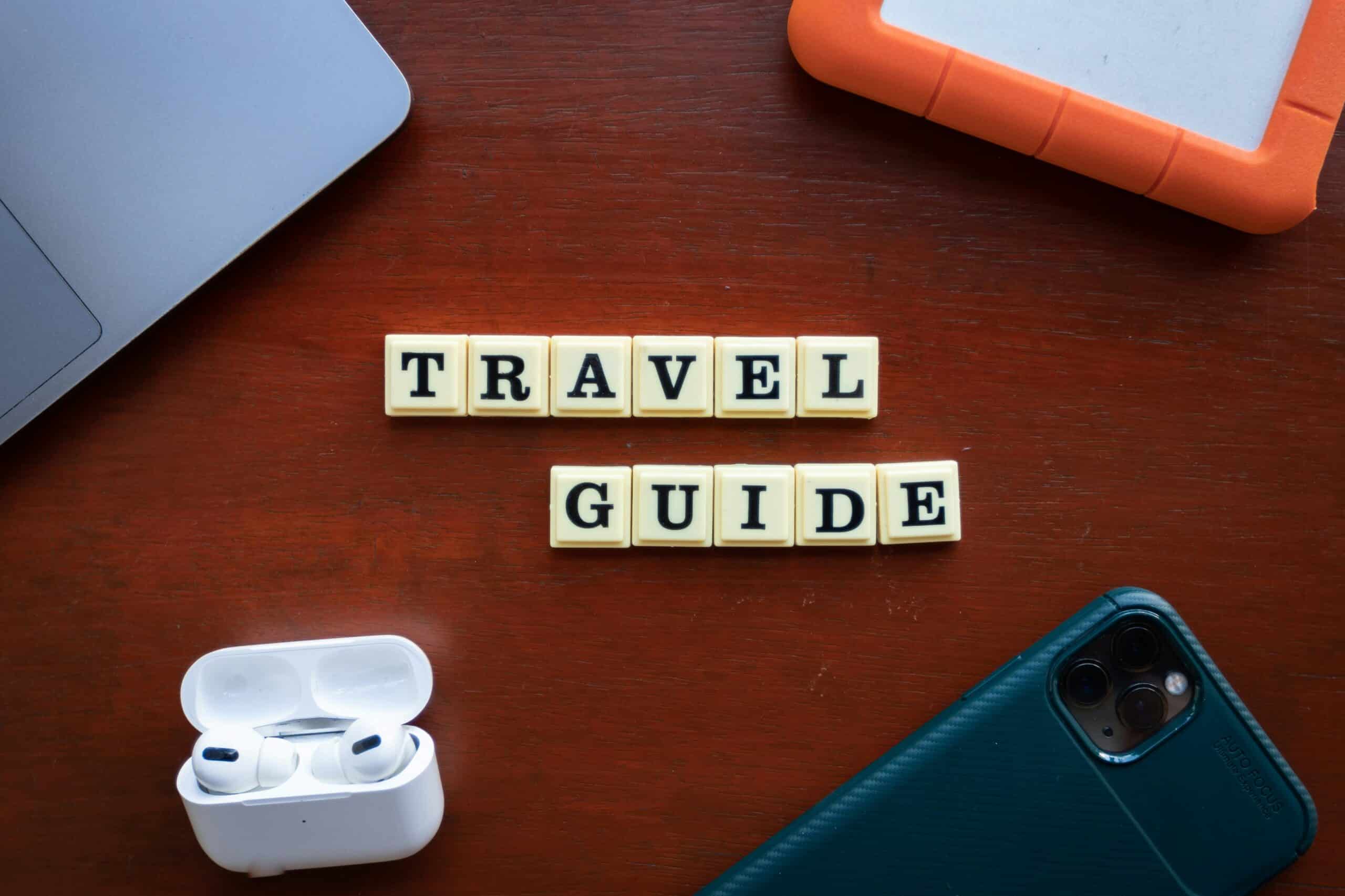Anúncios
Budget travel planning can feel overwhelming, especially if you’re in your twenties and itching to see the world without draining your bank account. But here’s the good news: with the right approach, you can enjoy amazing trips that fit neatly into your financial comfort zone. In this guide, we’ll walk through everything you need to know, from naming your travel priorities to finding a cozy place to sleep for less. By the end, you’ll have a solid plan for stress-free, budget-conscious adventures. Let’s dive in!
Understand budget travel basics
Budget travel means making intentional choices, so each dollar goes toward what really matters to you. It’s not about pinching pennies to the point of misery; it’s about adjusting your expenses in ways that feel comfortable and sustainable. According to Hecktic Travels, long-term travel often turns out cheaper on a daily basis than one-off, short-term ventures. Staying put longer in each destination means you have time to find better deals, skip pricey tourist traps, and learn your way around local discounts.
You may choose a cheaper spot, or you might incorporate ways to save on transportation. Budget travel is flexible. As you shape your dream trip, think carefully about how you balance cost-cutting with comfort. Don’t sacrifice enjoyment altogether. After all, the ultimate goal is to have an enriching, worry-free experience.
Know your travel goals
Ask yourself a simple question: what do you want out of this trip? Everyone’s definition of budget travel differs slightly. Some folks see it as hiking across Europe with just a backpack, while others envision exploring Asia’s most vibrant cities on a moderate daily budget. Pinpointing what truly matters helps you direct your money to the right places.
Prioritize what’s important
One trick to mastering budget travel planning is figuring out which parts of the trip matter most. Do you want museums, restaurants, nightlife, or nature hikes? If you’re into food, you might allocate more for local cuisine and less on accommodations. If you love hotel comforts, maybe keep your dining simple instead. Recognizing your priorities keeps you from spending on things you don’t care about.
Factor in personal preferences
Are you more comfortable in a private room, or are you fine sharing a hostel dorm with fellow budget-minded travelers? What about cooking your own meals? Crunching these personal preferences clarifies where you can cut corners, because you’ll zero in on what you truly enjoy vs. what you can live without.
Decide on your travel timeline
Picking the right time to travel can make a huge difference—and not just in terms of weather. Travel prices shift throughout the year. Off-peak or shoulder seasons let you snag cheaper accommodations, discover deals on local activities, and enjoy fewer crowds.
Shoulder seasons
Shoulder seasons are the sweet spots between peak and off-peak periods. For instance, Europe in late spring or early fall often means good weather and lower prices. Travel Bug Tonic notes how flexibility with travel dates helps you tap into discounted rates on flights and stays. You’ll enjoy the vibe of a popular destination without peak-season sticker shock.
Off-peak perks
The advantage of traveling off-peak is all about cost. Airlines and hotels drop their prices to attract more customers, as highlighted by Everki. Because they’re hungry for business in slower months, you can score excellent discounts. Plus, you won’t be stuck shuffling behind massive tour groups at every major highlight. It’s a win-win.
Craft your budget
The words “save money” and “travel” don’t need to clash. The key is to create a budget that handles the big stuff: transportation, accommodation, food, and activities, while leaving wiggle room for spontaneous adventures.
Setting a monthly allowance
If you’re planning a longer trip, start by estimating your monthly spending. Check average accommodation costs in your chosen region. For example, monthly stays can range from $600 to $1000 according to Hecktic Travels. Think beyond lodging too. You’ll need some funds for public transport, meals, and any tours you have your eye on. Setting a monthly figure helps you spot whether your travel style is realistic—or needs fine-tuning.
Tracking daily spending
For short trips or day-to-day spending, plan a daily allowance. A simple spreadsheet or budgeting app can keep you on track. This method is especially helpful if you tend to overspend on impulse. Some travelers follow meal and incidental expense guidelines like the per-diem rates used by federal employees (for example, roughly $79 per day in pricey cities like San Francisco, according to Money Crashers). Adjust that to fit wherever you’re heading and how you plan to dine.
Book your accommodations
Where you rest your head each night often sucks up a huge chunk of your travel funds. But there are more possibilities than just hotels. Budget travel planning thrives on creativity here, so explore options like hostels, house-sitting, or short-term apartment rentals.
Consider hostels
Hostels are classics for budget travelers. Despite lingering stereotypes, many hostels these days are modern, safe, and even stylish. According to Nomadic Matt, hostels can be surprisingly accommodating, offering more than just dorm bunks. You’ll often find private rooms, too, making them suitable for couples or friends who need more privacy. Shared kitchens let you save on food, and the communal vibe is perfect for meeting new folks on similar journeys.
Explore house-sitting
House-sitting through trusted sites like Trusted Housesitters is another clever way to keep lodging costs at zero while enjoying creature comforts like kitchens and laundry facilities. You look after someone’s pets or plants, and in return, you get a cozy place to stay. The membership fee might pay for itself after a single trip, especially if you’re on the road for weeks or months.
Collect loyalty points
Hotel loyalty programs and even credit card reward schemes can add up fast. Nomadic Matt highlights how earning points and miles leads to free nights and big savings. In some cases, these programs can cover entire accommodation costs for your trip. If you’re consistent, you can watch your travel budget shrink month by month.
Plan cheap transportation
Transportation costs can either make or break your budget. The good news is, whether you’re hopping around the world or moving between nearby cities, you’ve got a variety of strategies to keep those travel expenses in check.
Compare flight prices
If flying is on your agenda, it pays to book in advance. Travel Bug Tonic suggests looking for off-season promotions, plus scanning annual sales like Black Friday for deeply discounted fares. You can also explore budget travel deals for curated offers. Using airline alerts ensures you’re in the know when ticket prices drop. For short regional hops, check if budget airlines are worth it. Just remember to compare luggage fees, seat selection charges, and other hidden extras.
Go public
Buses, trains, and metros are often much cheaper than renting a car or taking taxis—especially where gas or per-mile fares get pricey. As Everki points out, public transport saves you a bundle and immerses you in local life. Need to move around multiple cities or countries? Rail passes or bus passes can simplify your planning and slash your travel bills. Before leaving home, check online schedules and tourist deals.
Use points or passes
If you’re traveling across Europe, for instance, a Eurail pass can be a huge budget saver if you’re planning multiple train rides. In other regions, local bus companies offer multi-journey tickets that drop the per-trip price. By carefully matching passes to your actual itinerary, you’ll stretch your funds and keep your trip flexible.
Eat on a budget
Dining costs add up quickly, but there’s no rule that says you must blow half your budget on dinner. By mixing cost-friendly meals with occasional splurges, you’ll savor local flavors without the next day’s wallet regret.
Cook your own meals
You can slash food expenses by preparing your own meals. Booking accommodations with a shared or private kitchen is a game-changer. Short-term rentals, hostels, or house-sits can offer you the tools to whip up everything from a quick breakfast to a celebratory dinner. According to Money Crashers, cooking can save you $20 to $30 a day per person in some areas. Start by grabbing fresh ingredients at local markets, then try local recipes. Not only does this bolster your budget, but it’s also a fun way to experience local life.
Avoid airport markups
Airport meals usually come with inflated prices. Try to pack snacks or even a light meal in your carry-on. Money Crashers suggests bringing enough to get you through your flight and until you find affordable food wherever you land. A granola bar now might save you from that $15 airport sandwich later.
Join loyalty programs
Restaurant loyalty programs can offer discounts and freebies. Chain eateries often have apps featuring special coupons, and some even hand out a free dessert for new members. If you’re traveling around the U.S., for example, you can benefit from nationwide chains. It’s not glamorous, but if a free treat or discounted meal helps your budget, it’s worth a shot. Meanwhile, you can balance it out by exploring unique neighborhood cafes.
Find extra savings
Looking for deeper discounts is all about being in the right place at the right time. Whether it’s a flash sale or a limited special, staying alert to deals can unlock serious travel perks.
Travel alerts
Signing up for airline and travel site alerts means you’ll get notifications about big discounts. Everki indicates you can sometimes snag over half off regular fares. Sure, you might need to be flexible with your arrival or return dates, but it’s a great way to land on spontaneous adventures for a fraction of the typical price.
Multi-visit passes
For frequent travelers, multi-visit or city passes bundle attractions for less. Everki also recommends grouping attractions in one area on the same day to save on transportation. For instance, if you’re in London, the London Pass can cover major museums and tours at a discount. If you’re exploring multiple theme parks in Orlando, get a multi-day or multi-park pass. That little bit of planning ensures you get maximum fun for the least cost.
Combine resources
Sometimes, a creative combination of resources unlocks even greater savings. Think outside the box when it comes to stretching your travel budget.
Volunteer at hostels
Volunteering is an overlooked but highly effective way to travel longer with minimal costs. Platforms like Worldpackers connect you to scenarios where you work a few hours per day in exchange for accommodation. Some hostels may even throw in meals. Beyond cost savings, you’ll likely create new friendships with staff and fellow volunteers. You might help at the front desk, handle housekeeping, or host social events. It’s a solid strategy to see more of the world while keeping expenses low.
Evaluate budget travel packages
Travel packages can be excellent if you need simplicity. Sometimes, bundling your flight, hotel, and activities results in better rates than purchasing each piece separately. If spotting a one-price option prevents you from overspending, that alone might be worth it. Check with local tour operators who cater to budget travelers, or use reliable online travel agencies for deals. Keep in mind that “package deals” can vary, so always compare their total cost against booking independently.
Plan for unexpected expenses
No matter how diligently you plot your budget, unexpected costs can pop up—like medical fees, gear replacements, or last-minute flight changes. According to Hecktic Travels, health and wellness expenses should be part of your plan. A solid travel insurance policy might seem pricey now, but if you need medical attention on the road, you’ll be grateful you have it.
- Keep an emergency fund for urgent travel changes, especially if you have strict commitments like returning to school or work on time.
- Always leave a little breathing room in your budget, so you can say yes to a spontaneous side trip or a unique souvenir.
Explore cheap travel destinations
Choosing destinations known for being inexpensive right off the bat can stretch your dollars further. Maybe you want to look into Southeast Asia, Eastern Europe, or certain parts of Latin America—these regions typically boast lower costs for lodging, food, and transportation. It’s an easy way to lengthen your trip without upping your budget.
Just remember to factor in extras like travel visas, immunizations, and any additional gear required. If you’re able to tick off these items efficiently, a budget-friendly region can yield priceless cultural experiences while preserving your funds.
Follow budget travel tips
From booking last-minute deals to packing a refillable water bottle, your approach to travel can shape how much you actually spend. Travel Bug Tonic suggests that every small money-saving hack adds up in the long run. For instance, bringing your own travel mug helps you dodge disposable cup fees, grabbing a local SIM card could slash communication costs, and traveling with the lightest luggage possible eliminates extra baggage fees. Consistency is key: the more mindful you are about each expense, the easier it’ll be to stay on track.
Craft your detailed itinerary
One overlooked part of budget travel planning involves organizing your daily schedule to cut down on wasted time and money. If you line up nearby attractions all in one day, you’ll reduce unnecessary transport costs. For bigger trips, scheduling rest days also prevents impromptu splurges.
- Group attractions by neighborhood.
- Book tickets in advance for known hotspots.
- Investigate multi-day or combo deals.
Everki emphasizes the importance of an itinerary not just for saving money, but also for maximizing your enjoyment. You’ll see more with less stress.
Pack smarter to save
Packing light doesn’t just simplify your life—it can save you real cash. Budget airlines in particular often charge hefty fees for extra weight or checked bags. Stick to a solid carry-on strategy with versatile clothing. If you do need warm layers or camping gear, consider renting from local shops when you arrive, rather than hauling bulky items across the globe.
Packing essentials list
- Lightweight, wrinkle-resistant outfits
- Travel-sized toiletries
- Reusable water bottle
- Universal power adapter
- Compact entertainment (e-reader, smartphone)
By focusing on what you actually need, you’ll be nimble enough to explore, switch transport modes easily, and avoid annoying baggage lines or fees.
Protect your health affordably
It’s easy to forget health care when mapping out a trip budget, but it’s crucial. Some travelers decide to wing it, but the risk of getting stuck with a massive medical bill isn’t worth it. Worldwide, plenty of short-term travel insurance plans cover emergency care if you fall ill or get injured. Some even include coverage for trip cancellations or lost luggage.
Look at your existing health insurance to see if they offer any overseas coverage. Even if it’s partial, it could handle major incidents. Otherwise, consider purchasing an affordable travel-specific plan. Spotting a plan that includes the activities you plan to do (like scuba diving or trekking) is key.
Use technology wisely
Budget travel has evolved alongside new tech. Apps for currency conversion, ride-sharing, and local deal-hunting can streamline your plans. Here are a few ways technology can help you save:
- Check local rideshare apps to compare costs with taxis
- Monitor flight price drops using airline or aggregator apps
- Research discount codes for tours or museum entrances
- Use offline maps to dodge roaming charges
Balancing your phone use with living in the moment is also important. Rely on the right apps, but don’t forget to talk to locals for inside tips.
Consider partial splurges
Sometimes, it’s okay to go for a small splurge. If you’ve planned carefully, treat yourself to a special dinner or a day trip that lights you up. You’ve saved enough elsewhere, right? Rewarding yourself might be that intangible factor that makes a memorable journey.
- Book a private room for one night after hostels all week
- Enjoy an adventure activity like zip-lining or scuba diving once in a while
- Indulge in a spa treatment if it’s uniquely local
Moments of comfort or luxury embedded in a mostly lean itinerary can help you avoid burnout and keep your spirits high.
Keep your budget flexible
No matter how closely you plan, real life doesn’t always follow your spreadsheet. Prepare yourself mentally for minor budget hiccups. Maybe flights are cheaper if you depart a day earlier than you expected, or you discover a once-in-a-lifetime event in the next town over. Budget travel that’s too rigid feels stressful. A loose cushion—both in time and money—lets you embrace delightful surprises along the way.
If your funds do start to run low, you can always trim expenses by cooking more often, skipping some optional tours, or spending an extra night in a cheaper area. Rolling with the twists and turns is half the fun of traveling.
Summarize your stress-free approach
Let’s tie it all together:
- Establish clear goals so you know what your money is truly for.
- Pick your travel dates smartly to snag deals and avoid crowds.
- Create a realistic budget that anchors the big costs.
- Seek out affordable accommodation—hostels, house-sits, loyalty programs.
- Compare transport choices and use travel alerts or points.
- Cook meals, avoid airport markups, and join loyalty programs.
- Keep an eye out for last-minute specials, city passes, or volunteer swaps.
- Build space for spontaneity so you can say yes to unexpected fun.
By harnessing these strategies, you’ll transform “I can’t afford it” into “I’m making it happen on my budget.” If you need more help or fresh ideas along the way, don’t forget that resources like budget travel tips and cheap travel destinations can spark new ways to save.
The real beauty of budget travel planning lies in organizing your trip so it works for you. You’re not missing out, you’re simply prioritizing what matters and skipping what doesn’t. Enjoy the process, ask around for local recommendations, and treat challenges as part of the journey. Safe travels, and may your wallet stay happy as you explore the world!








